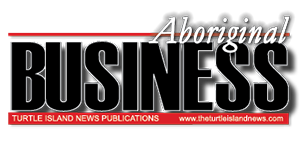PRESS RELEASE-OTTAWA and TRADITIONAL ALGONQUIN TERRITORY, ON, Feb. 4, 2019 – The federal government remains steadfast and on track in its commitment to end all long-term drinking water advisories on public systems on reserve by March 2021.
Today, the Honourable Seamus O’Regan, Minister of Indigenous Services, provided the department’s monthly progress update.
In January 2019, while no long-term drinking water advisories on public systems were lifted or added, four short-term advisories were lifted before becoming long-term. Working to resolve short-term advisories is an important part of the overall efforts underway alongside hundreds of infrastructure projects on-reserve across the country. The department currently projects that at least 15 additional long-term drinking water advisories will be lifted in the next six months.
Lifted short-term advisories in January 2019:
- Whitesand, in Ontario, lifted a short-term drinking water advisory from the Whitesand Public Water System on January 7. Whitesand receives water service provided by the Township of Armstrong, through a municipal service agreement. The advisory had been in place since May 2018, and was lifted when the town successfully employed a qualified, certified operator and regular water testing was able to resume.
- Sucker Creek, in Alberta, lifted a short-term drinking water advisory from the Treaty 8 House Semi-Public Water System on January 11. The advisory had been in place since November 2018, and was lifted after the cistern was cleaned and disinfected.
- Enoch Cree Nation #440, in Alberta, lifted a short-term drinking water advisory from the Decommissioned Enoch Public Water System on January 18. The advisory had been in place since November 2018, and was lifted after maintenance to correct the loss of pressure in the distribution system.
- Canim Lake, in British Columbia, lifted a short-term drinking water advisory from the Canim Lake West Community Water System on January 4. The advisory had been in place since September 2018 due to concerns during the installation of new water lines and water treatment plant. The advisory was lifted once recommended disinfection and flushing of the water system took place and samples came back satisfactory.
Since November 2015, 78 long-term drinking water advisories have been lifted from public systems on reserve. Work is underway to end the remaining 62 long-term advisories and prevent further short-term advisories from becoming long-term.
Quotes
“Some months will show greater progress than others as we work to eliminate all long-term drinking water advisories on public systems on reserve by March 2021. However, lifting short-term advisories before they become long-term is an important part of the greater work underway, and I am pleased that four short-term advisories were lifted in January. There’s still a lot more work to do, and progress can be followed at www.canada.ca/water-on-reserve.”
The Honourable Seamus O’Regan, P.C., M.P.
Minister of Indigenous Services
Quick Facts
- A drinking water advisory becomes long-term when it has been in place for over a year.
- The number of long-term drinking water advisories on public drinking water systems on reserves decreased from 105 in November 2015 to 62 as of December 31, 2018 after 78 of these advisories were lifted, 36 added and one was deactivated. Working in collaboration with First Nations, the Government of Canada has committed to ending all long-term advisories on public systems on reserves by March 2021.
- Since November 2015, 116 short-term drinking water advisories (lasting between two and 12 months) were lifted before becoming long-term.
- Budget 2016 provided $1.8 billion over five years toward water and wastewater infrastructure.
- Budget 2017 committed an additional $49.1 million over three years towards improving access to safe drinking water.
- Budget 2018 provides an additional $172.6 million over three years to help accelerate progress on lifting drinking water advisories and to ensure more infrastructure projects can be completed prior to 2021. Budget 2018 also provides support for repairs to high risk water systems, recruitment, training and retention initiatives, and the establishment of innovative First Nations-led service delivery models.
Associated Links
- Ending long-term drinking water advisories
- Investing in First Nations community infrastructure
- Lifecycle of a First Nation community infrastructure project
- Budget 2016: A Better Future for Indigenous Peoples
- Budget 2017 Highlights – Indigenous and Northern Investments
- Budget 2018 – Advancing Reconciliation with Indigenous Peoples
Stay connected
Join the conversation about Indigenous peoples in Canada:
Twitter: GovCan – Indigenous
Facebook: GovCan – Indigenous Peoples
Instagram: @gcIndigenous
You can subscribe to receive our news releases and speeches via RSS feeds. For more information or to subscribe, visit www.isc.gc.ca/RSS.
 Aboriginal Business Magazine Your source for Aboriginal Business News
Aboriginal Business Magazine Your source for Aboriginal Business News


